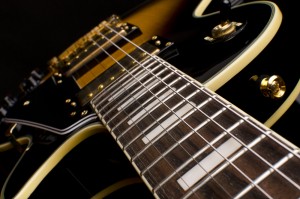Critic’s Choice
Music is frequently defined based on instruments but there’s no such things as “classical” instrument. The violin, for example, is arguably the most prevalent instrument around the world for the last several hundred years, and it’s played much more often in other genres than classical music.
Other instruments have been difficult to imagine in classical music. The most ubiquitous instrument of the last century is the electric guitar. The AK–47 of music—cheap, effective, and revolutionary—it is capable of producing a spectacular array of sounds, yet classical music composers have yet to adopt it widely.
One notable exception was Morton Feldman. His The Possibility of a New Work for Electric Guitar, was written for Christian Wolff, who premiered it in 1966. It was unpublished until 2015, after guitarist Seth Josel reconstructed the score from a tape made in performance by KPFA radio. Josel premiered his version in 2009, and has since recorded it on Mode records. Now, curious listeners can hear this work, and other classical music for electric guitar, through the choice of two concerts are unfortunately scheduled for the same evening.
On Friday night electric guitarist Trevor Babb will play Steve Reich’s Electric Counterpoint, a world premiere from Paul Kerekes, and pieces by Michael Fiday and Tim Brady—7 p.m. at Spectrum. Starting one hour later, at the Firehouse Space, Sean McFarland will play Feldman’s piece and music by Larry Polansky, Marco Cappelli, and Christian Wolff, that was inspired by the legend of The Possibility during the years it was thought lost. McFarland will also play excerpts from Satie’s Vexations, showing at the very least that the electric guitar can play classical music as well as the piano.
Trevor Babb plays Reich and more 7 p.m. Friday at Spectrum; Sean McFarland plays Feldman, Satie, and more 8 p.m. Friday at the Firehouse Space.






